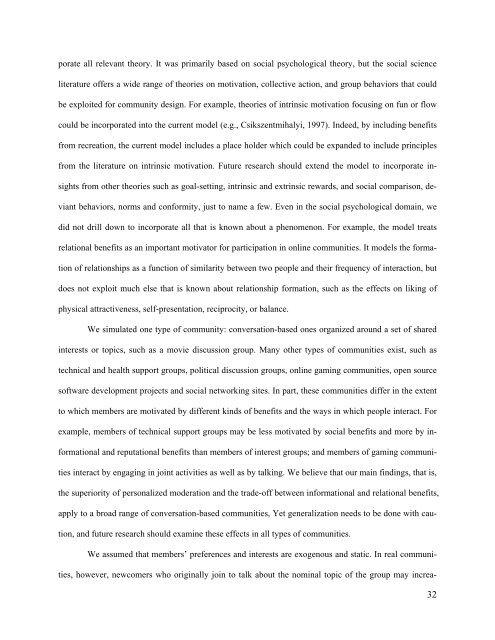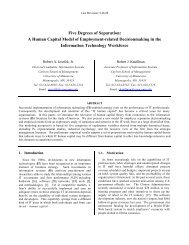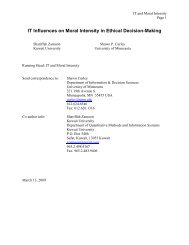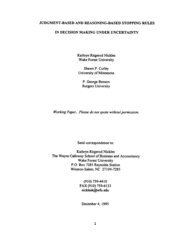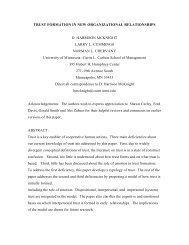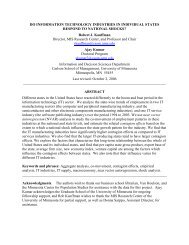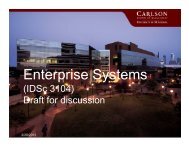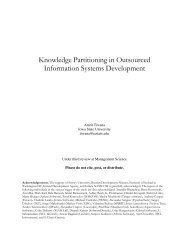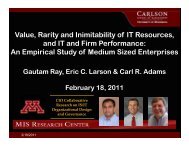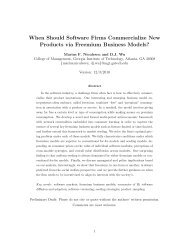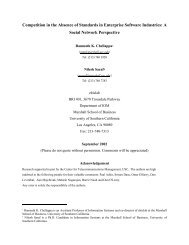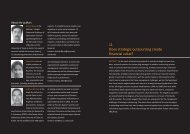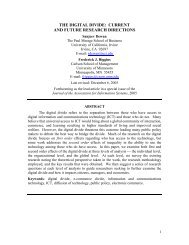Agent-Based Modeling to Inform Online Community Theory and ...
Agent-Based Modeling to Inform Online Community Theory and ...
Agent-Based Modeling to Inform Online Community Theory and ...
Create successful ePaper yourself
Turn your PDF publications into a flip-book with our unique Google optimized e-Paper software.
porate all relevant theory. It was primarily based on social psychological theory, but the social science<br />
literature offers a wide range of theories on motivation, collective action, <strong>and</strong> group behaviors that could<br />
be exploited for community design. For example, theories of intrinsic motivation focusing on fun or flow<br />
could be incorporated in<strong>to</strong> the current model (e.g., Csikszentmihalyi, 1997). Indeed, by including benefits<br />
from recreation, the current model includes a place holder which could be exp<strong>and</strong>ed <strong>to</strong> include principles<br />
from the literature on intrinsic motivation. Future research should extend the model <strong>to</strong> incorporate in-<br />
sights from other theories such as goal-setting, intrinsic <strong>and</strong> extrinsic rewards, <strong>and</strong> social comparison, de-<br />
viant behaviors, norms <strong>and</strong> conformity, just <strong>to</strong> name a few. Even in the social psychological domain, we<br />
did not drill down <strong>to</strong> incorporate all that is known about a phenomenon. For example, the model treats<br />
relational benefits as an important motiva<strong>to</strong>r for participation in online communities. It models the forma-<br />
tion of relationships as a function of similarity between two people <strong>and</strong> their frequency of interaction, but<br />
does not exploit much else that is known about relationship formation, such as the effects on liking of<br />
physical attractiveness, self-presentation, reciprocity, or balance.<br />
We simulated one type of community: conversation-based ones organized around a set of shared<br />
interests or <strong>to</strong>pics, such as a movie discussion group. Many other types of communities exist, such as<br />
technical <strong>and</strong> health support groups, political discussion groups, online gaming communities, open source<br />
software development projects <strong>and</strong> social networking sites. In part, these communities differ in the extent<br />
<strong>to</strong> which members are motivated by different kinds of benefits <strong>and</strong> the ways in which people interact. For<br />
example, members of technical support groups may be less motivated by social benefits <strong>and</strong> more by in-<br />
formational <strong>and</strong> reputational benefits than members of interest groups; <strong>and</strong> members of gaming communi-<br />
ties interact by engaging in joint activities as well as by talking. We believe that our main findings, that is,<br />
the superiority of personalized moderation <strong>and</strong> the trade-off between informational <strong>and</strong> relational benefits,<br />
apply <strong>to</strong> a broad range of conversation-based communities, Yet generalization needs <strong>to</strong> be done with cau-<br />
tion, <strong>and</strong> future research should examine these effects in all types of communities.<br />
We assumed that members’ preferences <strong>and</strong> interests are exogenous <strong>and</strong> static. In real communi-<br />
ties, however, newcomers who originally join <strong>to</strong> talk about the nominal <strong>to</strong>pic of the group may increa-<br />
32


